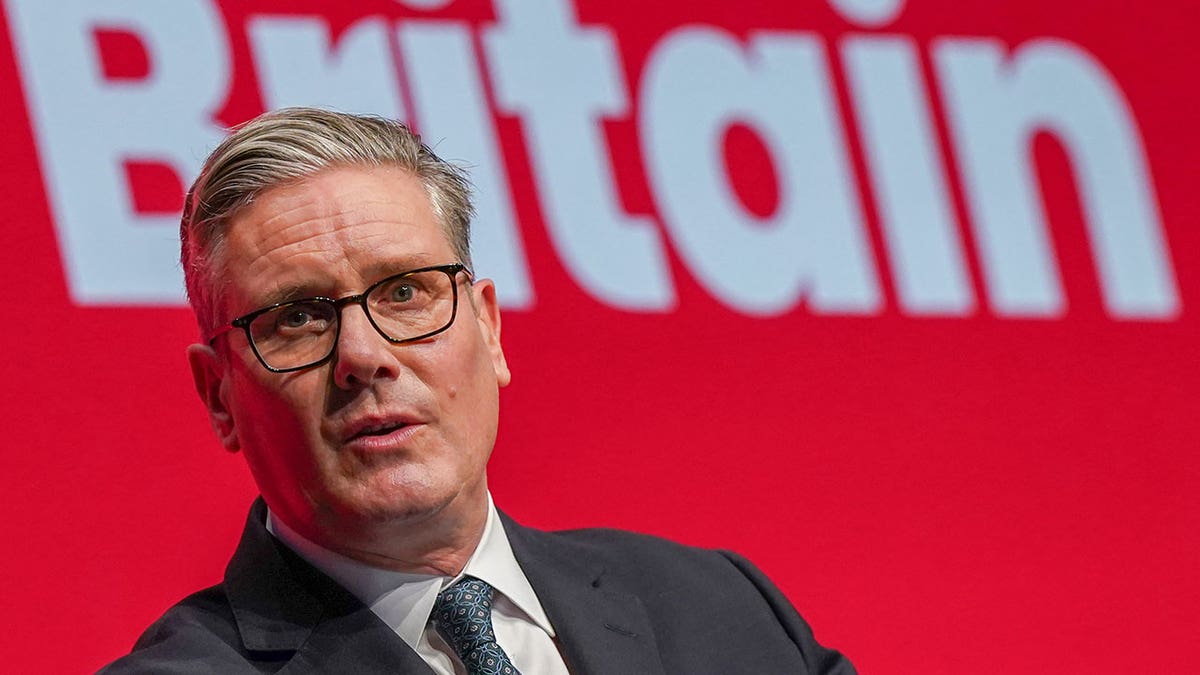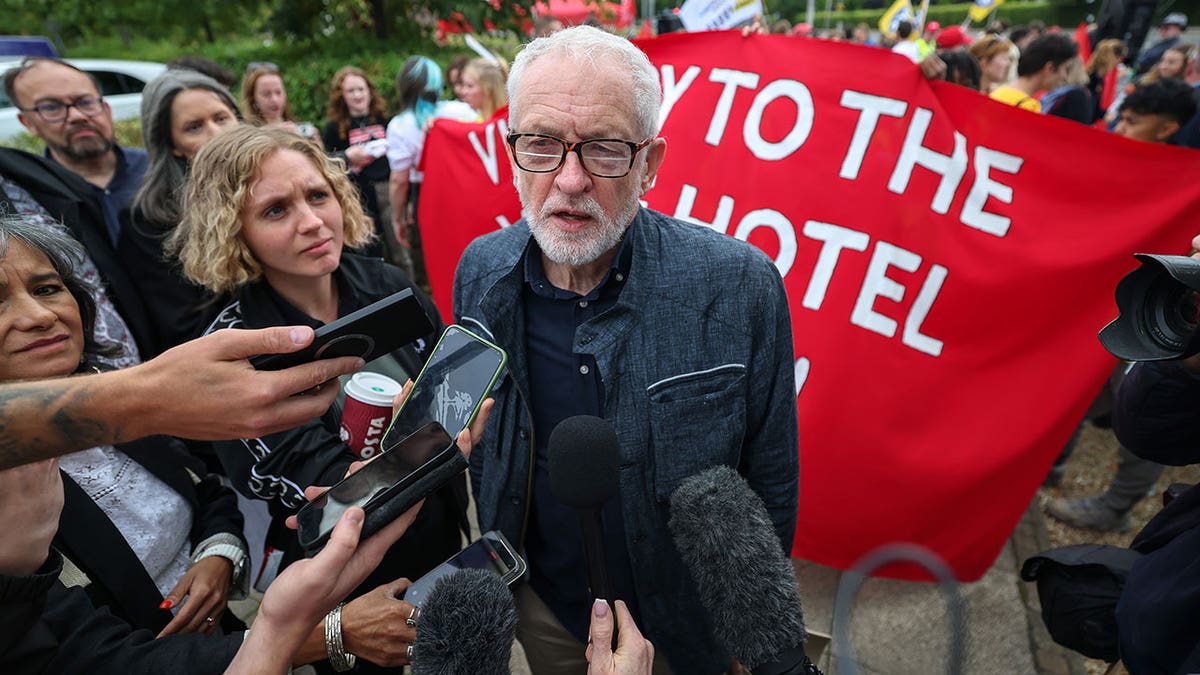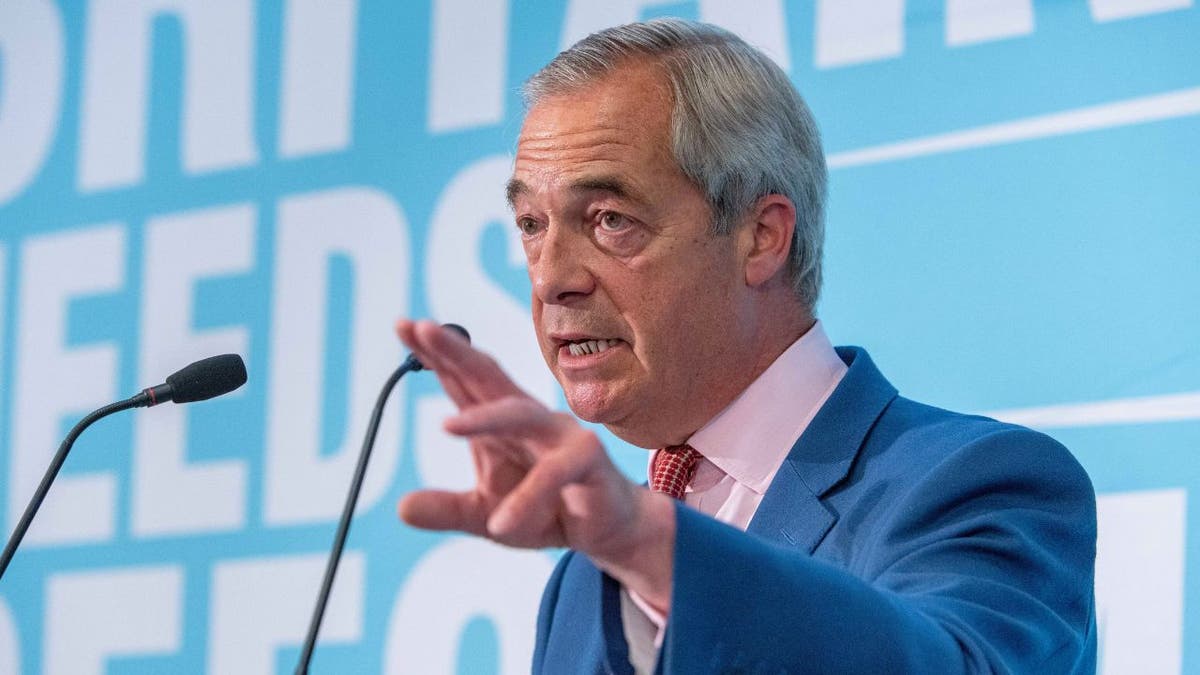

The U.K.’s right and left-wing parties have reached an uncommon consensus: they oppose British Prime Minister Keir Starmer’s latest attempt to curb illegal immigration through mandatory digital ID cards.
The plan, announced last week and which will be fully rolled out by August 2029, revived a decades-old debate across the U.K. over whether digital IDs will be overly intrusive or even effective in combating illegal migration.
"You will not be able to work in the United Kingdom if you do not have digital ID. It's as simple as that," Starmer, leader of the Labour Party, said in announcing the compulsory plan.
TRUMP SCOLDS EUROPEAN NATIONS OVER IMMIGRATION POLICIES DURING MAJOR UN ADDRESS

Prime Minister Keir Starmer delivers his keynote speech during the Labour Party conference at ACC Liverpool on Sept. 30, 2025, in Liverpool, England. ( Ian Forsyth/Getty Images)
But while illegal immigration has become an increasing concern across both sides of the aisle in the U.K., Starmer’s approach has been met with open opposition.
Former Labour Party leader Jeremy Corbyn, who left the party in 2024 to stand as an Independent, said he "firmly oppose[s] the government’s plans for compulsory digital ID cards."
"This is an affront to our civil liberties, and will make the lives of minorities even more difficult and dangerous," he said. "It is excessive state interference — and must be resisted."
Corbyn, who this week launched his own political movement called "Your Party" as an alternative to what he called the "control freaks" of Labour, echoed similar criticism once voiced by right-wing leader Nigel Farage, who founded Reform UK in opposition to the Conservatives.
REFORM UK PROPOSES DEPORTING 600,000 ASYLUM SEEKERS IN SWEEPING NEW IMMIGRATION CRACKDOWN

Former Labour leader Jeremy Corbyn speaks to striking hotel workers on the picket line outside the Village Hotel on Aug. 22, 2025, in Glasgow, Scotland. (Jeff J Mitchell/Getty Images)
Farage, in a post on X, said he was also "firmly opposed" to the mandatory digital ID cards and argued, "It will make no difference to illegal immigration, but it will be used to control and penalize the rest of us."
"The state should never have this much power," he added.
While Starmer’s plan has drawn fire from both the left and right, albeit for very different reasons, polls suggest the public mood is also shifting.
The Independent reported that more than half of Brits backed digital IDs in June, with fewer than 20% opposed.
But that support appears to have drastically shifted, with nearly half of all Brits now saying they oppose the measure, according to the news outlet.

Reform UK leader Nigel Farage speaks during a press conference in Westminster, United Kingdom on June 10, 2025. ( Thomas Krych/Anadolu via Getty Images)
The digital ID card, which can be kept on a smartphone, would include a holder’s name, residency status, date of birth and nationality. British reports said it would initially be used only for employment verification, though its scope could be expanded.
The plan faces resistance: more than 2.4 million Brits have signed a petition on Parliament’s website opposing it, the BBC reported. Any petition with over 100,000 signatures must be considered for debate.
No. 10 could not be immediately reached for comment.
